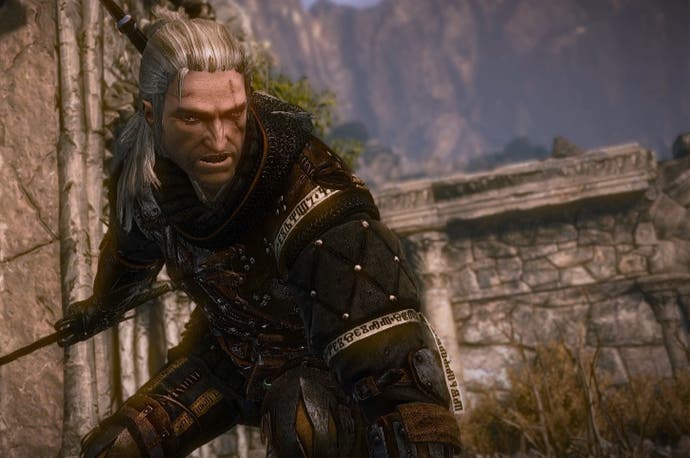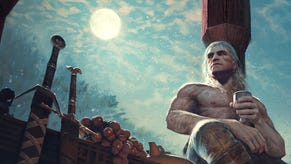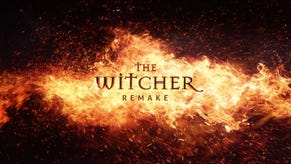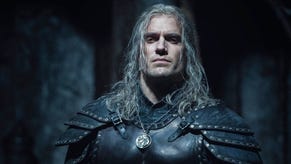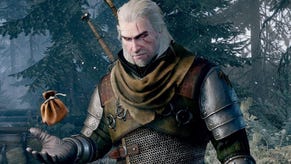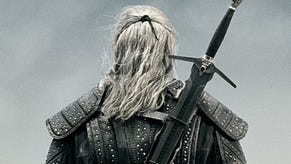The Witcher 2: Assassins of Kings retrospective
Spit and Polish.
It's befitting of a game that features an amnesiac protagonist that the recounts of its players can vary wildly from one person to the next. This variation can leave one player scratching their head in befuddlement when they hear of the events that befell another, but it's not due to anyone misremembering quest details, game features or the story's closing sequence. Instead, it has as much to do with when you played The Witcher 2 as how you played it.
The first year of The Witcher 2: Assassins of Kings saw it undergo a significant evolution, transforming an already excellent and mature RPG into a highly polished gem. As I discovered upon returning to it recently, those who played it through prior to the release of the Enhanced Edition would benefit from a repeat run, while it's never been more receptive to new arrivals.
Back in May 2011, I was eager to reacquaint myself with Geralt of Rivia after enjoying the original game and so I picked-up The Witcher 2 on day one. This made me the happy owner of The Witcher 2: Nearly There Edition, an unofficial subtitle that I'm bestowing upon CD Projekt's initial PC release, which existed between May and September 2011. This version started by throwing you into the action right from the off, apparently trusting that you either remembered enough of your previous Witchering to recall what each Geralt's magic signs did and how best to handle yourself in a fight or that you could muddle through regardless.
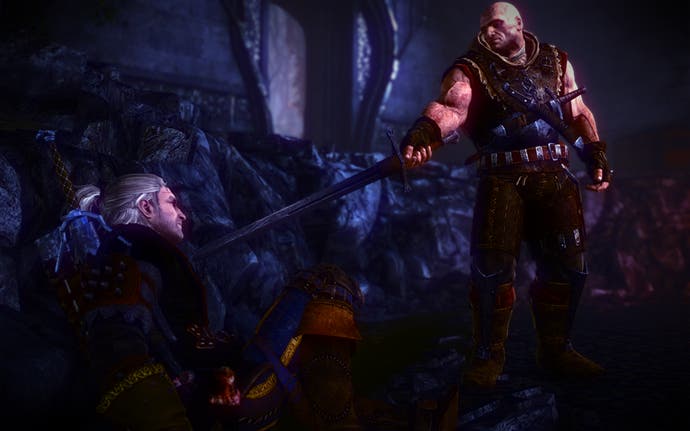
This approach proved problematic for many. The combat system had undergone some fundamental changes since the first game, eschewing the unjustly maligned stance and timing systems in favour of a more direct, click-to-hit approach. This presented a challenge for some returning players, while the lack of any meaningful instruction in how best to tackle multiple foes made it difficult for new players to learn under the pressure of the game's unique prologue.
Those that made it past the opening hours were presented with several concurrent and pleasingly complex narrative threads that were too roughly tied together. It was easy to miss the connection between the seemingly minor events of one chapter and major events of another. The bold move to allow you to prioritise Geralt's personal quest for total recall in favour of his wholehearted involvement in tracking the titular assassins further muddied the narrative waters. CD Projekt had conceived of an intriguing wider fiction to ensure that the world didn't revolve solely around Geralt but The Witcher 2's three-act structure felt somewhat disjointed and The White Wolf's travels were occasionally disorientating.
Some of these issues were addressed with the release of patch 2.0. Coming four months after the original launch the patch added, amongst other things, a tutorial. Players of the The Witcher 2: Bit Better Edition benefited from improved combat and a refined control system. In typical CD Projekt style, the update also included additional content in the form of an even harder difficulty level and a separate combat arena, all for free.
However, the narrative presentation remained untouched and without careful study of the in-game journal and paying particular attention to the machinations of the game's major and minor players there was the potential to become fuzzy about what exactly was going on, like watching an episode of Game of Thrones while slightly drunk and very tired.
This led to The Witcher 2: Assassins of Kings Enhanced Edition, which is the version that Xbox 360 players experienced as well as those PC players whose first play-through occurred after April 2012. With the major mechanical wrinkles already ironed out, the Enhanced Edition concentrated on adding a whole raft of narrative improvements, as well as several hours of new content to the slim-pickings of the third act.
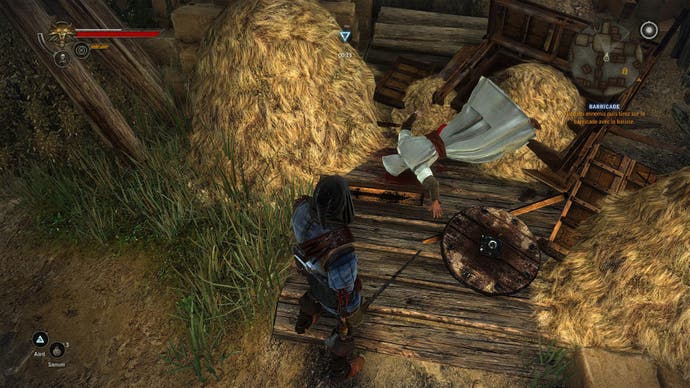
The end of each chapter gained a neat summation of its key events and an overview of where Geralt's journey was taking him next, as recounted by the foppish Dandelion the bard. Upon completing the game there was a round-up of the key choices you'd made throughout, which is handy when there's a 16 different states that the world can end up in, along with a final cinematic setting-up the events of The Witcher 3. Everything made more sense and so you could stop grappling with the manner in which things were being delivered and instead concentrate on how things and people related to one another and why that man was hacking off that other man's head.
It was fascinating to watch a developer learn in real time like this. With each iteration The Witcher 2 became more polished and more inviting of a repeat play-through. With its careful refinements and additional content the Enhanced Edition of The Witcher 2 became the equivalent of a Game of the Year edition of other titles and, as is CD Projekt's way, this additional content was free for owners of original release. Rather than fixing something that was broken, these additions were simply improvements to an already excellent game; improvements that meaningfully impact a second or third play-through.
Quite aside from the version changes, The Witcher 2 is a game that's made to be replayed and this is perfectly encapsulated by its second act. Games often give you an illusion of choice, leading you down a slightly different path or opening-up additional dialogue options before depositing you in the same location. In The Witcher 2, choosing to side with Special Forces commander Vernon Roche or rebel leader Iorveth at the end of the first act opens one of two unique locations for the second, with different NPCs, narrative threads and a plethora of different quests. It's brave to cordon off content in this way, maybe even a little naive, but it's indicative of CD Projekt's approach to game design and makes The Witcher 2 a more intriguing proposition because of it.
The invitation to replay is prevalent in other areas too. In any one play-through you can only ever earn enough skill points to spend on a third of the available skills and their upgrades. It's another intriguing and divisive decision that makes you think about how you want to progress Geralt's abilities. You can concentrate on trying to max out one of the Swordsman, Magic or Alchemy skill trees or dabble in all three. Fittingly for The Witcher, there is no right or wrong choice; it simply alters your approach to how you play as Geralt of Rivia.
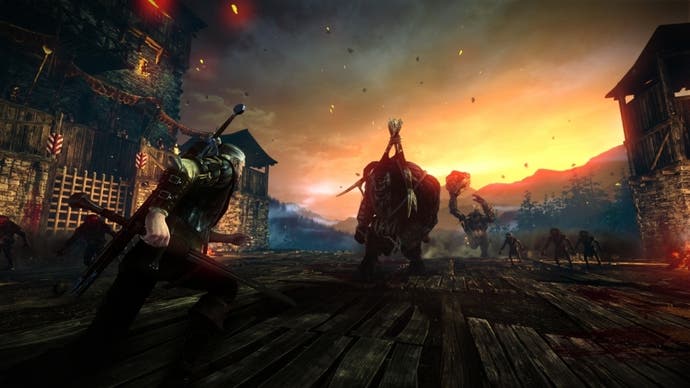
The game play choices are big and bold, then, and invite a level of consideration far beyond that of both the original Witcher and of many other RPGs. The narrative decisions are equally significant, even the minor ones, but this is one area in which the game's ambition to spin an epic, multifaceted yearn are to its detriment. In the original Witcher, many of the choices felt incidental, almost invisible and in some cases it was only when the consequences of your actions were played back to you hours later that you realised that you'd made a pivotal choice, either through action or inaction. It was then that you'd begin to understand just how twisted a tale CD Projekt was spinning and how much better it was doing it than everybody else. The game cared little for good intentions, sometimes twisting them as the gritty, often unjust, events of its dark world played out.
In The Witcher 2, the choices are grander, more closely tied to the overarching narrative and more obviously sign-posted. There's little room for the neutrality of the first game, instead you're explicitly forced to pick a side; to kill a tyrant or save a damsel; to stay the hand that would kill a king or let it swing regardless. It's a sign of CD Projekt's grander ambition for its sequel, but it's a shame that the notion of neutrality fell by the wayside, especially when the first game had invested time and effort in establishing that it was the true path of The Witcher to stand outside of society's squabbles.
Despite this, The Witcher 2: Assassins of Kings remains one of the best examples of a game with a strong lead character and focused narrative that still allows you to tell your own story and shape your experience. The Witcher 2's own story is one of evolution and just as the world of the Witcher is in a constant state of flux, so too was the game during its first year in the wild as it underwent its transformation.
It's one of the few tales featuring Geralt of Rivia to have a happy ending.
